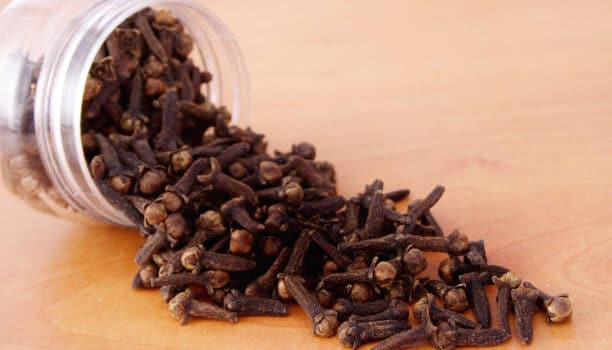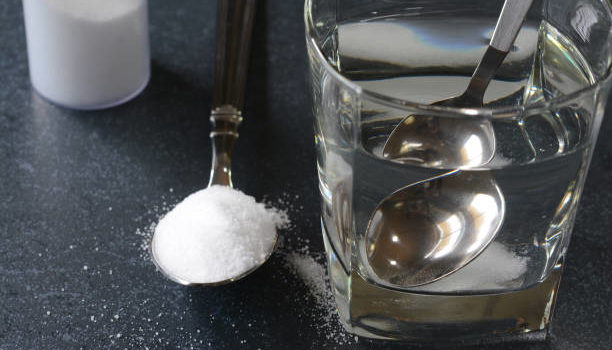
It’s 10:47 p.m. You’re finally settling into bed after a long day, ready to mind your business and drift off… and suddenly, boom, a toothache hits you. You try ignoring it, and you even try prayer, but tooth pain has no respect.
This is where safe, simple home remedies for toothache can help … at least temporarily.
If you’ve ever been in this moment, you know that a toothache demands attention, even when the dentist’s office is closed.
We’re here to help you with natural home remedies for a toothache that can calm the situation until you can get real care.
But before we get to the remedies, let’s break down what’s actually happening to your tooth.
What Causes a Toothache?
Tooth pain usually means something deeper is going on. The most common causes include:
-
Cavities (the usual suspect)
-
Gum disease or inflammation
-
A cracked tooth
-
A loose filling or crown
-
An abscess (that’s an infection)
-
Sinus pressure
-
Grinding or clenching your teeth
-
Food stuck between teeth—yes, that tiny popcorn shell has caused many grown people to call for their mama
The pain, which can affect a single tooth or even multiple teeth, means your tooth’s nerve is irritated or inflamed. Home remedies can soothe that nerve temporarily, but they can’t fix the root cause.
You might also have pain in the jaw or the gums.
RELATED: Do You Really Need to Remove Your Wisdom Teeth?
How to Know It’s Really a Toothache—Common Toothache Symptoms
Some of these symptoms ease up with simple home remedies for toothache, but others are big red flags that need a dentist. Beyond the obvious pain, look out for these feelings:
-
Throbbing or pulsing in the tooth
-
Pain when chewing or biting
-
Swollen or tender gums
-
A foul taste in your mouth
-
Pain that radiates to the ear or jaw
-
A headache on the same side as the toothache
Quick Tip:
If the pain worsens when you lie down, it usually means inflammation is building. Please don’t ignore it.
RELATED: 10 Things Your Teeth Are Telling You About Your Health
Home Remedies for Toothache That Can Actually Help
Here are 10 remedies, mostly natural remedies, that you can try. These home remedies for toothache, some recommended by Cleveland Clinic, won’t cure your dental problems, but they can buy you some comfort, especially at night or when you can’t reach a dentist immediately:
Saline or Salt Water Rinse
Saltwater helps loosen debris, reduce swelling, and calm irritated tissues.
-
Stir ½ teaspoon salt into a warm glass of water
-
Swish for 30 seconds
-
Repeat a few times a day
This is a gentle, safe, and home remedy for a toothache recommended by pretty much every dental professional.
Cold Compress or Ice Pack
If the toothache is from trauma, swelling, or inflammation, ice will help numb the area and slow blood flow.
Hold a cold pack to your cheek for 10–15 minutes, on and off.
Clove
Clove oil is a true natural home remedy for toothache because it contains eugenol, a natural numbing agent. You don’t need much.
-
Dab a little clove oil on a cotton ball
-
Place it gently against the sore tooth or gum
(Avoid swallowing it. The flavor is said to be “interesting.”)
According to the Cleveland Clinic, clove oil has mild anesthetic and antibacterial properties that can temporarily relieve tooth pain.
IMPORTANT: Do not give clove to infants, toddlers, or children.
Garlic
Garlic contains allicin, which has natural antimicrobial power that helps fight bacteria. Crush it with a little salt and put it on the tooth. Yes, you’ll smell like garlic bread—but it can help.
Guava Leaves
If you happen to have these in your kitchen pantry, this toothache home remedy can help soothe swollen gums and promote healing. Chew a clean guava leaf or boil crushed leaves to make a warm mouthwash that
Hydrogen Peroxide Rinse
Helpful for killing bacteria if there’s gum swelling.
-
Mix equal parts 3% hydrogen peroxide and water
-
Swish gently. Don’t swallow
The American Dental Association notes that hydrogen peroxide can help reduce plaque and gum bacteria, but should never replace professional care.
Peppermint Tea Bags
Peppermint naturally calms pain and reduces inflammation.
-
Steep a tea bag
-
Let it cool until warm
-
Place directly on the tooth
Bonus: your breath will be fresh too.
Thyme
Dilute one drop of thyme essential oil with a carrier oil and apply it to the gum or use it as a mild mouth rinse to help fight bacteria and ease irritation.
Vanilla Extract
Dab a little real vanilla extract onto the sore area for a quick numbing effect from the natural alcohol.
Over-the-Counter Pain Relief
Ibuprofen or acetaminophen will do much more than any home remedy by directly reducing inflammation or pain signals.
And no, do not put aspirin directly on your tooth or gums. That old-school advice burns tissues and can make everything worse.
RELATED: 9 Things Your Teeth Want You to Stop Doing
Home Remedies That Don’t Work (And Might Make Your Toothache Worse)
You may have grown up with these home remedies for toothache, but we’re here to say, skip them.
-
Don’t put aspirin on your gum — it causes chemical burns
-
Don’t use straight alcohol — doesn’t help tooth nerves
-
Don’t apply heat to your face — heat spreads infection
-
Don’t rely on home remedies for toothache longer than 24–48 hours
If your mouth is swelling or you feel feverish, skip the home remedies and call for help.
RELATED: What Your Teeth May Reveal About Your Penis
Toothaches in the Black Community: Why This Matters More Than We Think
Black communities experience more dental problems and have less access to routine care. Not always because we don’t want to go, but because of cost, location, insurance barriers, and a long history of not being heard or taken seriously in medical spaces.
According to the CDC, non-Hispanic Black and Mexican American adults in the U.S. are nearly twice as likely to have untreated cavities compared to their non-Hispanic white counterparts.
So toothaches hit us harder, linger longer, and turn into bigger problems faster.
A toothache is not something to “push through.”
RELATED: 8 Ways Oral Health Impacts Your Mental Well-Being
Signs You Need a Dentist ASAP for Your Toothache
The decision to seek out a dentist or medical attention can be tricky, especially if you think your toothache is not serious or if these home remedies for toothache work. But here are some signs that you should strongly consider seeking a medical professional. These are signs of infection, and infections spread fast:
-
Swelling in your face, ear, or jaw
- Abnormally red gums
-
Fever and/or chills
-
A bad taste or pus
- Bleeding from the gums or teeth
-
Pain that lasts longer than 48 hours
-
Trouble opening your mouth, eating, or speaking
-
Extreme sensitivity that doesn’t get better
-
Pain so bad it keeps you up at night
-
Chest pain or tightness
- Trouble breathing or swallowing
Your dentist will ask about your symptoms and perform an exam. They may also take an X-ray to see if there are issues underneath your gums.
The next course of action depends on how severe your situation is. The dentist may:
- Prescribe medication
- Remove the tooth
- Fill a cavity
- Perform other procedures
If money or insurance is an issue, try these places that do real work for a fraction of the cost:
-
Dental schools where students work under licensed dentists and offer reduced rates
-
Community clinics with sliding scale fees
-
Free dental days or mobile clinics in your area (local public health departments often post these online)
RELATED: Tooth Truths: 10 Reasons Your Gums Bleed
A Final Word on Home Remedies for Toothache
Tooth pain is one of those things you can’t ignore. And while these home remedies for toothache can calm things down for a little while, they’re not a cure.
If the pain keeps coming back or gets worse, don’t suffer through it. Get help as soon as you can.
Treat that toothache like the warning sign it is and get the care and beautiful smile you deserve.










